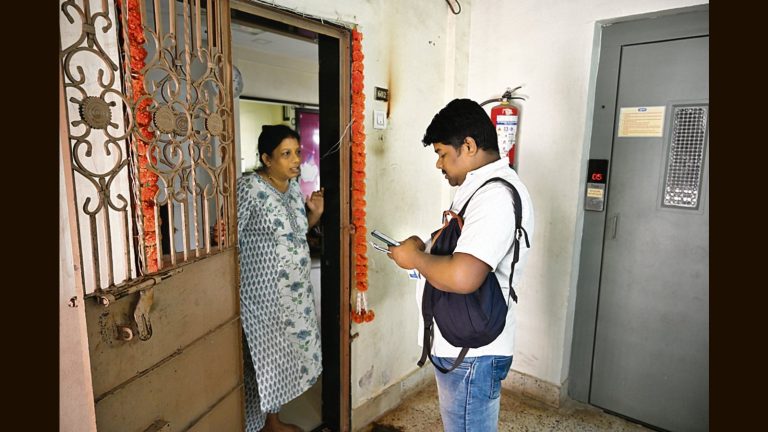MUMBAI: Allegations of unauthorized data collection and profiling of citizens in the Mumbai Metropolitan Region (MMR) under the guise of data collection for Maratha survey reservations have surfaced, raising concerns among the community Christian and civil rights groups.

The Bombay Catholic Sabha (BCS) and Citizens for Justice & Peace (CJP) have raised objections to what they describe as “a covert operation being carried out under the guise of Maratha Reservation Survey”.
The allegations surfaced during a press conference organized by the BCS and CJP at the Mumbai Press Club on the theme ‘Policing and Citizen Profiling: How an NPR Clandestine Database and Selective Surveys Profile Vulnerable Citizens.’ »
Reports received from various areas, including Vikhroli, Gokuldham, Goregaon East and Thane, suggest that the people supposed to conduct the survey used app-based software to collect the data. The investigators, whose identities have not been revealed, were accused of asking intrusive questions about religious affiliation and conversion history, particularly targeting Christian households.
One particularly disturbing incident, according to BCS president Dolphy D’souza, involved surveyors entering a cosmopolitan housing society and singling out Christian houses, reminiscent of past cases of community profiling. Melwyn Fernandes, secretary of the Association of Concerned Christians, highlighted the disturbing nature of these investigations, saying: “Many of my employees are from Uttar Pradesh. They were asked when they came to Mumbai. What is the need for such questions?
The lack of transparency regarding the organizations involved in carrying out the investigation and the identity of the investigators has raised concerns about the security of the data and the legitimacy of the entire operation. Merlyn D’sa, a representative of the Mira-Bhayandar Municipal Corporation, expressed confusion over the survey form, saying: “I am Catholic, but checking the East Indian Catholic column gives wrong information because Catholics of the East Indies are classified in the “Other” category. Backward class,” which I am not.
Furthermore, residents of areas like Marol and Juhu were falsely informed that the survey was conducted to provide food rations to a particular community, thereby adding to the ambiguity surrounding the purpose of the data collection.
Questions regarding survey outsourcing, question design and data security safeguards were directed to the state government and various municipal corporations. Ignatius Quadras, an 86-year-old resident of Thane, recounted his experience with the surveyors, saying, “I told them that I have been living in Thane for 60 years and do not own any land or house there.
As concerns grow over the implications of such profiling, the BCS has urged its members to report any further complaints to the organization’s leadership. The lack of clarity surrounding the investigation and its implications for marginalized communities highlights the need for transparency and accountability from authorities.
In response to these allegations, government officials have yet to provide an explanation, leaving citizens concerned about the motivations for the investigation and its potential impact on privacy and community relations.
Furthermore, allegations have also surfaced regarding the introduction of Aadhar data into the National Population Register (NPR) without the informed consent of citizens, potentially violating both the requirements of the Citizenship Act and fundamental rights guaranteed by the Indian Constitution.
According to Teesta Setalvad, secretary of the CJP, information obtained through several RTI applications suggests a significant increase in NPR data between 2010 and 2015, despite no active investigation conducted during this period. The NPR data, which stood at around 23 crore in 2010, is said to have jumped to 119.6 crore in 2015, indicating the use of Aadhar data collected for determination of residence to update the NPR data. This raises concerns about the implications on citizenship status, as the collection of NPR data is intended for the issuance of a national identity card under the Citizenship Act, which has a direct impact on the citizenship rights of individuals.


